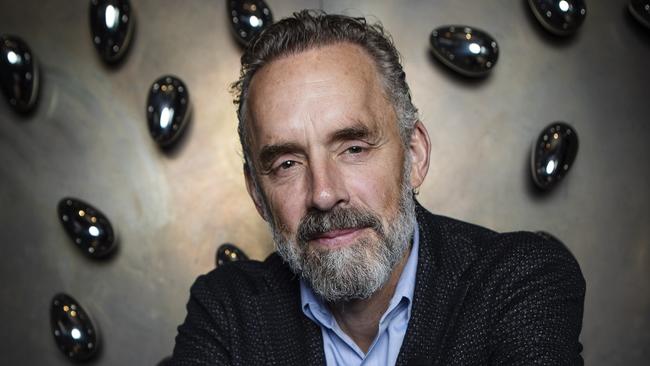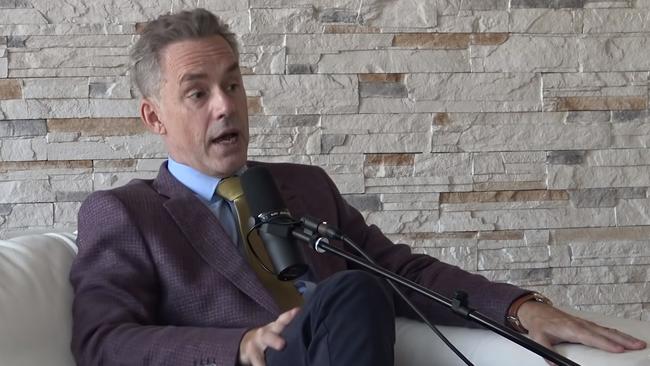Jordan Peterson inflames the Assemblies of Wokeness
Little cliques are trying to kill off a vibrant, free and intellectually diverse culture.

On Wednesday VICE World News reported that emotion boiled over at a staff meeting when employees of publishing firm Penguin confronted managers about its decision to publish Jordan Peterson’s latest book, Beyond Order: 12 More Rules for Life.
Some Penguin employees spoke to VICE about their reasons. One mentioned a co-worker who thinks Peterson “radicalised” their mother and father. Another mentioned how publication will “affect their non-binary friend”.
Another staff member described the heightened emotion: “People were crying in the meeting about how Jordan Peterson has affected their lives.”
Penguin employees followed a well-worn path: to prove that diversity in the 21st century cannot make room for the likes of Peterson, Penguin staff accused him of being transphobic, an icon of hate speech and white supremacy.
It is true that Peterson once stood next to a fan who wore a T-shirt that said: “I’m a Proud Islamaphobe.” And that is evidence of precisely nothing.
Another employee criticised Penguin for not acknowledging that it wants to make money from Peterson’s book. Ye Gods, a company wants to make profits from goods it sells in the open and free market.
Then Twitter exploded. More woke warriors tried to tear down Peterson and his upcoming sequel to Twelves Rule for Life: An Antidote to Chaos. Peterson was accused of being an anti-communist. And the problem with that is … what exactly? The author was also accused of being anti-Semitic. Again, no evidence is mentioned.

Since news of the brouhaha at Penguin broke on Wednesday, many have suggested that the emotional staff members objecting to the publication of Peterson’s book should find a job outside publishing, or at least read his first book before wanting to ban his new one.
That overlooks the fact that the woke are, if nothing else, strategic. Reading the book would strip them of blissful ignorance. And there is a reason they choose to work in schools, at universities, in bureaucracies, at public broadcasters and in the arts, too. There is no creative space for pursuing a woke agenda if you’re a welder, a plumber or running a pizza shop.
As one literary agent told The Times last month, the tension arises “from an industry in which staff are left-wing but the structures are entirely capitalist and market-driven”.
“The main way for the young to express their idealism is through protest,” said the agent, adding that this tension created headaches for publishing bosses.
Not to mention the bigger headache for a functioning democracy. Wokeness has moved beyond the university campus. For many fully fledged adults, it is their secular religion, call it the Assemblies of Wokeness. The movement is tribal, increasingly well organised and, importantly, premised on a new morality. Not all woke pursuits are bad. But those parts that undermine basic values in a democracy are rotten. For example, when followers of the Assemblies of Wokeness dismiss dissenters as immoral apostates who must be silenced. Unlike many other religions, wokeness often struggles to offer redemption to sinners.
The staff uprising at Penguin is part of a much deeper and broader battle over diversity waged inside a growing number of industries and institutions. Most people are understandably attracted to nice ideas such as diversity and tolerance. These people often fall prey to more canny members of the woke movement, whose dual aims, like most religious leaders, are power and control. They colonise different spheres of public and private life, from corporations to the kitchen table, if Gillian Triggs had her way. And taken to its logical conclusion, they will usher in a stifling, intolerant puritanism that will beat historical antecedents hands down.
In a modern-day parody of Orwell’s 1984, they use phrases such as “diversity” and “inclusion” to cleanse ideas from dissenters so that their utopian vision is not threatened. For them, a Peterson book cannot be ignored, it must be pulped.
These visionaries employ “sensitivity readers” to ensure new books won’t “upset” people by presenting different views. They shame authors such as Lionel Shriver for cultural appropriation because, as a middle-aged white woman she dares to write fiction that deviates from her own life experience. Shakespeare would not survive woke culture. And JK Rowling is their numero uno nemesis for pointing out that some trans rights impinge on the rights of others.
On the other side of this raging battle are people who understand that genuine progress is messy, exhilarating, nonlinear and beyond the wit of authoritarian social engineers: that progress relies on a robust marketplace of ideas where even a weird chap who consumes only meat, salt and water can write freely about his 12 rules for a good life.
Slowly, more people are coming to realise that a great deal rides on maintaining such a healthy marketplace of ideas. While zealous adherents of wokeness may not be well suited to listening to other points of view, others might be prevented from joining the hardliners if they are encouraged to wonder about where wokeness leads.
Who, for example gets to call the shots in a woke world? And who will be left standing when a woke mob come for you if you question their increasingly dogmatic diktats? How can we work out that a consensus has become both wrong and dangerous, except through dissenting voices? A few chats about courage of dissenters from the past, and the empowering morality of freedom of expression won’t go astray either.
To its credit, Penguin put out a statement this week defending its right to publish diverse points of view. What a win-win week for the publishing company. Given the ideological make-up of its staff, Penguin surely knew that a town hall-style meeting would become a platform for emotional outbursts, public controversy and lots of free publicity. Job well done.
Apart from guaranteeing healthy books sales, Penguin employees have also boosted Peterson’s celebrity. Just as more people might be questioning Peterson’s credibility as a role model for his earlier preaching about an ordered life, the behaviour of Penguin staff reminds us why this deeply flawed Canadian psychologist speaks for those who are marginalised and mocked by woke folk. These will include many who voted for Trump in 2016, and many who added nine million more votes to Trump’s final tally, even as he lost to Biden.
Interesting, the staff disturbance at Penguin over Peterson erupted the day after Netflix released Hillbilly Elegy, a movie that surely overlaps with Peterson’s base. Ron Howard’s movie is based on the memoir by JD Vance, a bestseller in 2016 as elites in coastal metropolises struggled to understand the rise of Trump. The movie and reaction to it offer more evidence of a continuing cultural divide that can only fuel Trumpism.
Vance grew up poor in the midwest rust-belt of Middletown, Ohio. He spent summers with his mother’s family, a ragamuffin crowd of hillbillies from Kentucky. There is no father, only a revolving door of men who hook up with his drug-addicted mother. And a smoking, cursing, loving grandmother — his “Mamaw” — who extracted him from a destiny where kids leave school early and end up jobless and hopeless. Teenage pregnancies are rife, along with crime, addiction and violence. Against all odds, Vance joined the military, served in Iraq and went to Yale Law School.

The movie recaptures the social decay of deindustrialised America in Vance’s memoir. Though Trump is not mentioned in the book, or the movie, Vance’s bootstrap story of survival and success explains why millions of Americans, left behind by globalisation and other elite obsessions, sided with a wealthy insider who campaigned for the working class as a boisterous and shameless outsider.
Curiously, critics who have panned the movie complained that it has been cleansed of politics. What, precisely, do these highly educated writers need S-P-E-L-L-E-D O-U-T for them? In one scene, at a Yale dinner for prospective interns, an urbane law partner from New York asks the young Vance what it’s like when he returns to home to the “rednecks” in Ohio. He may as well have called them deplorables.
The movie is a two-hour screen adaptation about politics being downstream from culture. So is the tearful outburst of staff at Penguin. At polar ends of the spectrum, both show that dysfunctional cultures produce dysfunctional politics.
Politics might become less polarised when there is less mocking and more genuine engagement by people trying to step into the shoes of others, regardless of their class and cultural backgrounds.
For all their years of higher education, the woke have not worked out that while Trump will soon be gone, Trumpism thrives on their misguided quest for power.




If you don’t have any matches handy, let alone a book to burn because it is not yet published, then maybe crying in anticipation of publication makes sense. Scrap that. Little of what happened at Penguin this week makes good sense. This single small episode shows that little cliques from the Assemblies of Wokeness have big aims to kill off a vibrant, free and intellectually diverse culture. The timing was perfect too. Just as Donald Trump (almost) conceded his defeat, it has become clear why Trumpism is here to stay.